Alex Heeney picks the six most exciting breakout performances at Sundance 2018. Each gave a detailed, astute, and fully committed performance that announced the arrival of a major new screen presence. Read the rest of our Sundance 2018 coverage here.
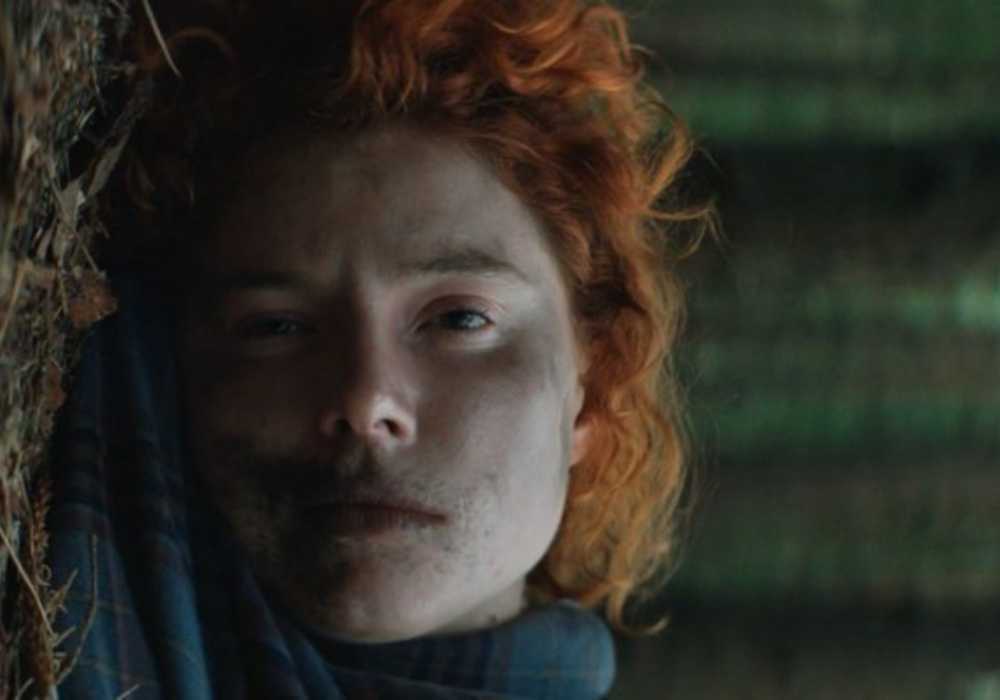
Last year’s Sundance breakout performers included Josh O’Connor in God’s Own Country, Timothée Chalamet in Call Me by Your Name, and Harris Dickinson in Beach Rats — an extremely talented crop. This year, the emerging talent is just as exciting. These six performances are detailed, astute, and fully committed: a group of major new screen presences have arrived.
Jared Abrahamson in American Animals
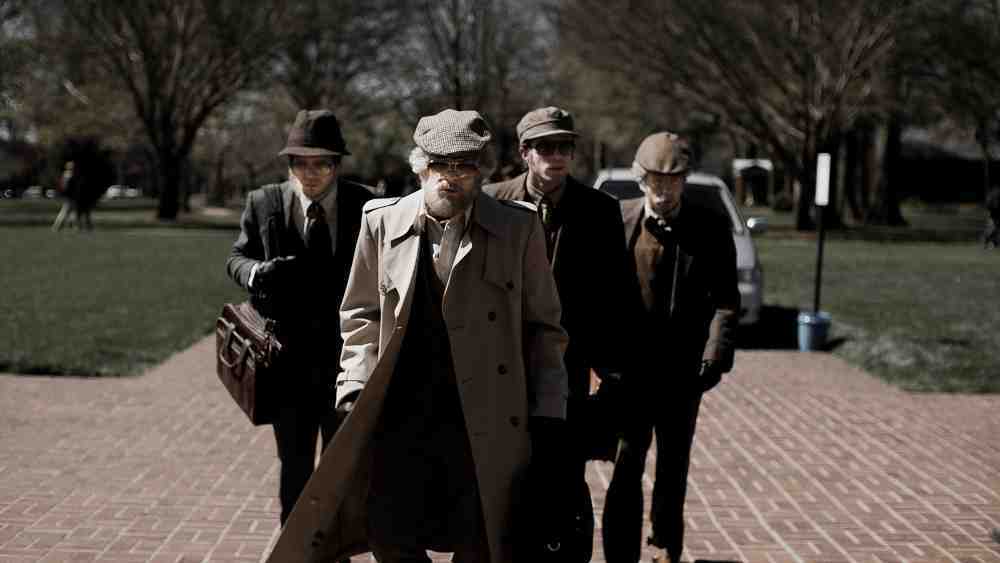
In Canada, we tend to think Jared Abrahamson broke out with his role as a depressed and disgraced hockey player in 2016’s Hello Destroyer; the film toured Canada’s festival circuit and was one of Canada’s Top Ten. He’s since played several supporting roles in Canadian and American indies, notably, as a macho oil rig worker in Never Steady, Never Still. Nevertheless, it’s his supporting turn in American Animals that will likely introduce him to most American and international audiences.
Abrahamson’s manner tells us all we need to know about why his character, an affluent college student, would be tempted into robbing a University’s rare books collection. Socially awkward, soft-spoken but direct, he’s intrigued by the challenge and the problem-solving required. He’s always upright and alert, with his eyes on ringleader Warren (Evan Peters) at all times: finally, he has a group of friends to talk to, which matters more than the stupidity of the crime that brings them together. Like his co-star, Barry Keoghan (who effectively broke out last year with Dunkirk and The Killing of a Sacred Deer), Abrahamson is a captivating screen presence and skilled shape shifter.
Vivian Bang in White Rabbit
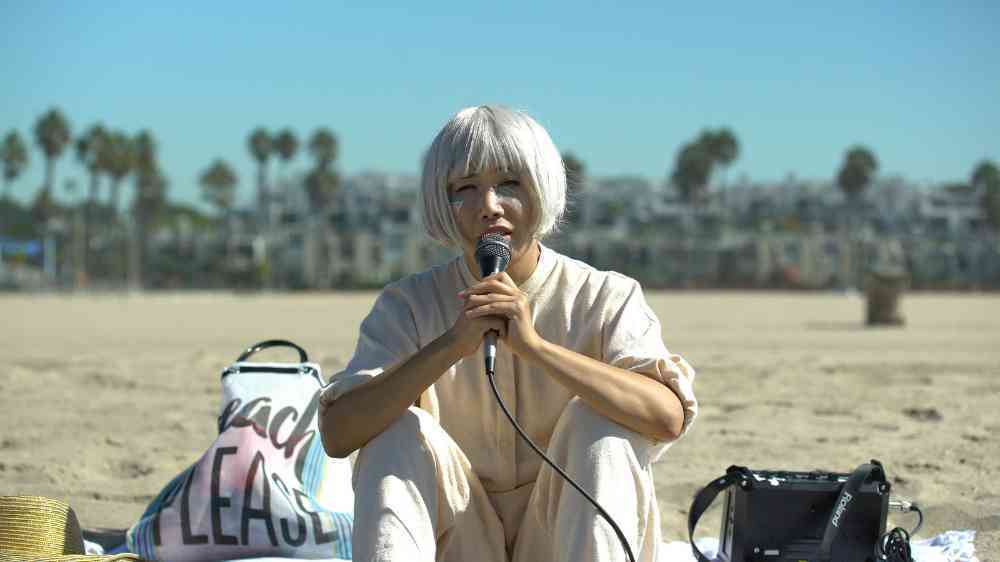
As a regular on multiple TV shows, including Swedish Dicks and Sullivan & Son, Vivian Bang is hardly a newcomer to professional acting. But Daryl Wein’s White Rabbit, which she co-wrote with Wein, is her first starring role, and proof that she’s a creative force to reckon with. Although inspired by Bang’s own site-specific performance art, which her character performs in the film, White Rabbit also follows Bang’s Sophia as she navigates work, relationships, and a sea of traumatic whiteness in L.A.
Whether she’s donning a wig and a Korean accent for her art, or interacting with friends or ex-lovers whom she’s incapable of listening to, Bang shows us how obnoxious Sophia can be while also revealing the vulnerability and hurt that makes her behave this way. Appearing in almost every scene of the film, Bang crafts a complex woman looking for human connection. Sophia has instinctively learned to put up boundaries in an unfriendly world where she faces microaggressions and indifference; Bang’s thoughtful reactions reveal how her behaviour is informed by her experiences.
Jessie Buckley in Beast
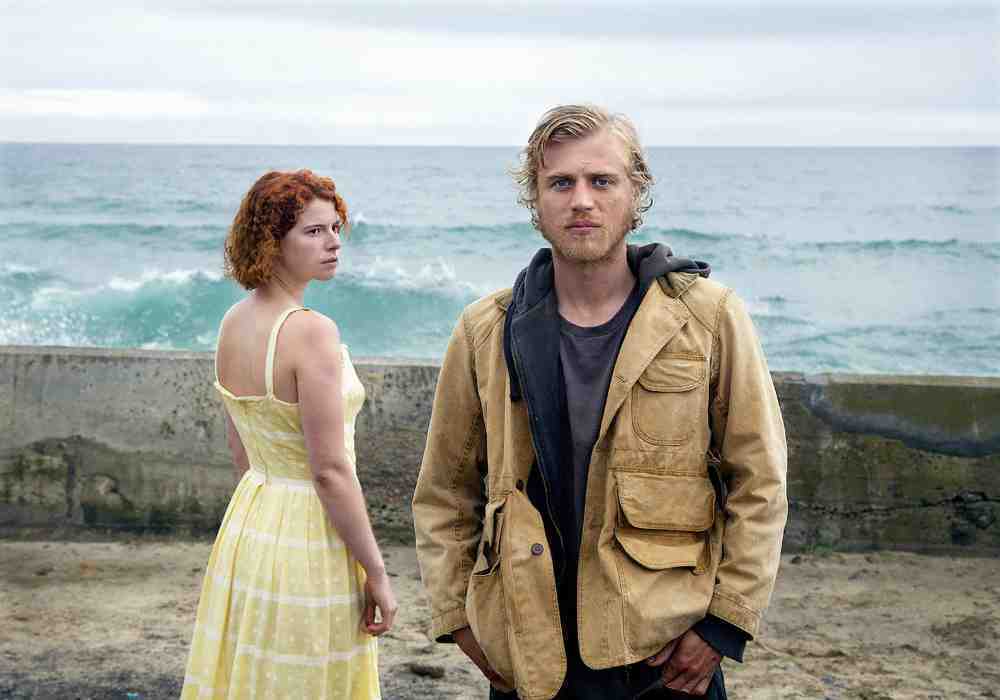
Although Jessie Buckley has been doing consistently good work on stage (e.g., in Kenneth Branagh’s A Winter’s Tale) and the small screen (the BBC’s War & Peace), Beast is her first film role. Buckley’s performance already garnered her a “rising star” at the Toronto International Film Festival, where Beast premiered. At Sundance, her work remains among the best at the festival.
Buckley stars as Moll, a twenty-something woman who feels ill-at-ease in her constrictive family, but finds freedom in a romantic relationship with a mysterious stranger, Pascal (Johnny Flynn). Buckley has to walk a fine line: she needs to convince as the good girl so that we believe her family buys her performance. But she also has to give us brief glimpses at the cracks in that façade. She begins the film straight-backed and constrained, getting increasingly loose and wild over time — until she ends up almost completely feral.
[clickToTweet tweet=”‘Jessie Buckley is straight-backed and constrained at the start of BEAST, getting increasingly loose and wild over time – until she ends up almost completely feral.'” quote=”‘Jessie Buckley is straight-backed and constrained at the start of BEAST, getting increasingly loose and wild over time — until she ends up almost completely feral.'”]
As the film is told from Moll’s perspective, it’s vital we see how head-over-heels in love she is with Pascal, believing herself to be in a whirlwind romance; she throws herself into it, letting loose and smiling wildly. But it’s also important we see how she may be projecting an image onto him out of infatuation. She’s increasingly convinced that he might not be what he seems: Buckley shows us slight flashes of fear that we detect but he doesn’t.
Jakob Cedergren in The Guilty
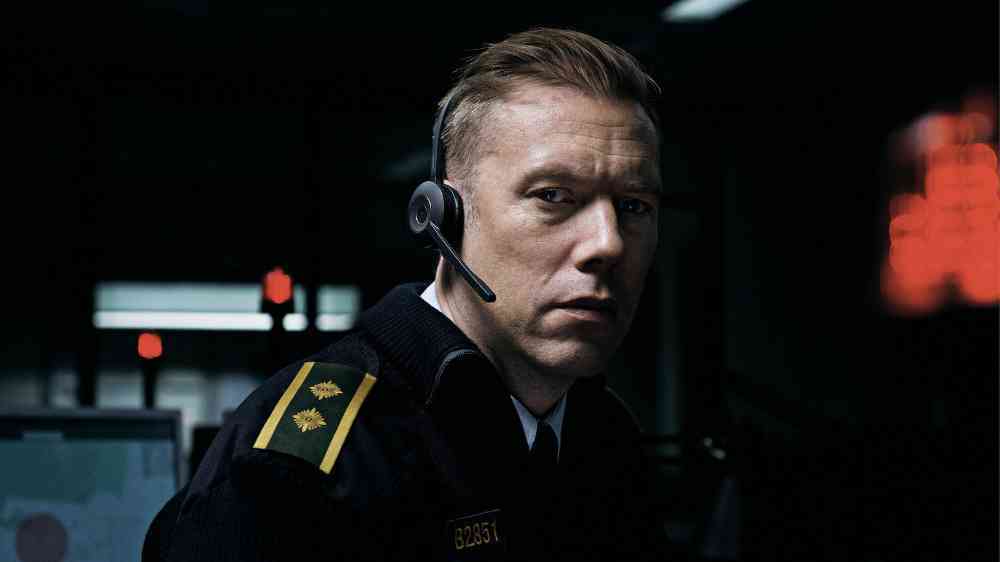
Jakob Cedergren is an established actor in Danish film and television, but he has yet to feature in anything with major North American crossover. His leading role in Gustav Möller’s The Guilty, in which he is the only actor on screen for almost the entire film (other actors are heard but not seen), is likely to change that. Although Möller employs multiple visual tricks to ratchet up tension, and uses a rich aural landscape to help us conjure images of off-screen action, the film rests almost entirely on Cedergren’s shoulders.
Cedergren plays Asger, a police officer tasked to mind the 911 lines as punishment. He starts the film relaxed, leaning back in his chair, responding to calls with condescension. He’s not happy to be here, and he wants everyone to know it. But when he gets a call from a woman claiming she’s been kidnapped, he starts to take things seriously — too seriously, perhaps. There’s fear and tension in everything he does, even though he’s mostly confined to his desk chair: his face is tight, he fidgets with his fingers, tapping them when they’re not shaking of their own volition, and his voice is urgent and strained.
[clickToTweet tweet=”‘There’s fear and tension in everything Jakob Cedergren does in THE GUILTY, even though he’s mostly confined to his desk chair.'” quote=”‘There’s fear and tension in everything Jakob Cedergren does in THE GUILTY, even though he’s mostly confined to his desk chair.'”]
Asger becomes increasingly worried, frightened, and humbled by the realisation that he’s only making things worse by trying to help. By the midpoint, he’s begging colleagues on the phone rather than acting the arrogant expert. In every break between calls, we can see him processing what’s happened: sometimes, utterly still and in shock; sometimes, shaking with worry; sometimes, revving himself up to find a solution. It’s an incredibly detailed and emotional performance, and there’s never a false note.
Raúl Castillo in We the Animals
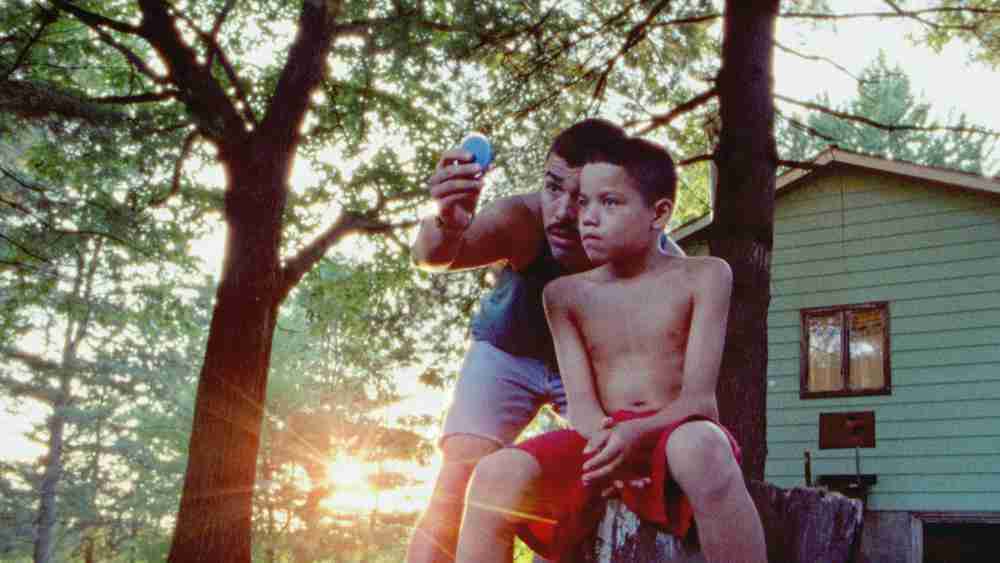
To fans of HBO’s Looking, it will come as no surprise that Raúl Castillo makes this list: his work as heartthrob Richie was always among the show’s best performances, mixing vulnerability with flirtation and code-switching. Jeremiah Zagar’s debut feature, We the Animals, is most notable for Castillo’s performance as an abusive husband and father who is at turns deeply vulnerable, loving, and violent.
Castillo’s character is much too rich to be dismissed as a stock villain, even though he’s seen leaving his family, early on, after beating his wife (Sheila Vand): he explains to his children with terrifying calm that their mother had to go to the dentist who, he claims, punched her jaw to loosen her wisdom teeth for removal. We know what that means, but his children hang on his every word as though it must be the truth. When he decides to teach his wife and son how to swim by safely pulling them out to the middle of the lake, there’s such a gentle, loving tone to his voice and tenderness in his movements; it comes as a shock to us, and to them, when he suddenly abandons them to fend for themselves, coldly insisting “how else are they going to learn?”
[clickToTweet tweet=”‘Jeremiah Zagar’s debut feature, WE THE ANIMALS, is most notable for Raúl Castillo’s performance as an abusive husband and father who is at turns deeply vulnerable, loving, and violent.'” quote=”‘Jeremiah Zagar’s debut feature, WE THE ANIMALS, is most notable for Raúl Castillo’s performance as an abusive husband and father who is at turns deeply vulnerable, loving, and violent.'”]
Still, it’s Castillo’s work in the third act that really stands out. Here, we see a man struggling to maintain his dignity despite the precarity of his employment situation, and the necessity of breaking rules to care for his children. When he loudly and abruptly yells at them to get them out of his way, we can see what his children can’t: he’s afraid for his job, not actually angry at them. But his behaviour still leaves them discussing how it’s always their fault. Still, they idolize him, and we see in their violent behaviour how they’ve learned to mimic his.
Castillo’s portrait of an abuser is three-dimensional: he’s a broken man on the verge of cracking completely. By the end, his job situation has worsened to the point that he’s terrified he won’t be able to provide for his children. We watch him struggle to hold back tears when he’s with his boys — not because he needs to maintain an appearance of masculine dominance, but because he doesn’t want them to worry. Later, instead of taking out his anger on them or his wife, finally, he finds another outlet. His children, watching on with confusion, conclude he’s digging a grave in the backyard. But from the tension in his body and the roughness of his movements, we can see he’s just shovelling to try to unleash his anger and disappointment in a healthier way. There may just be a way forward.
Dominique Fishback in Night Comes On
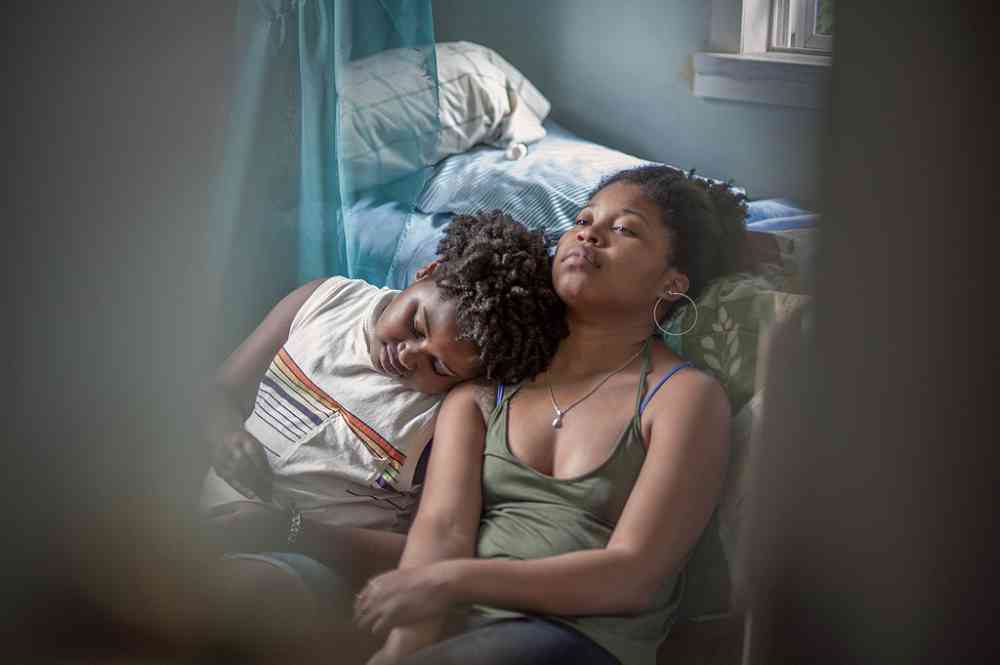
Dominique Fishback stars in Night Comes On as sixteen-year-old Angel, fresh out of juvenile detention and struggling to start over. Appearing in every scene, Fishback is not only a charismatic and compelling performer, but she beautifully adapts her body language and voice to each new situation.
On her first day out of juvie, meeting first with her parole officer and then a gun salesman, Angel is full of brusque attitude, with quick and loud rejoinders: we sense it’s how she’s survived. But she’s also easily chastened when her PO dares her to dream of a future — and easily hurt when he then tries to take that possibility away. Later on, she tones that brusqueness down to a more polite version when encountering new people: she’s always keeping her head down, eyes straight ahead, afraid to ask for help and certain that no one will offer it. We can see in Fishback’s eyes that she’s learned to believe that nobody really cares about her. It’s a strong contrast to her younger sister, Abby (Tatum Marilyn Hall), who makes friends wherever she goes.
[clickToTweet tweet=”‘Appearing in every scene of NIGHT COMES ON, Dominique Fishback is not only a charismatic and compelling performer, she also beautifully adapts her body language and voice to each new situation.'” quote=”‘Appearing in every scene of NIGHT COMES ON, Dominique Fishback is not only a charismatic and compelling performer, she also beautifully adapts her body language and voice to each new situation.'”]
When Angel visits Abby, though, she suddenly becomes a protector. Angel is constantly observing her sister’s living situation — her room, her belongings, the people around her — to check that everything is okay. When Angel declares to one of Abby’s friends that she’ll be back to take Abby away as soon as possible, we see Angel shouldering family responsibility willingly and with pride. It isn’t just her life she needs to worry about. At the same time, we see just how much she cares for her sister in the way she softens to Abby’s every request for time together.
In the film’s final act, Angel decides to visit her estranged father out of anger and fear. Fishback’s posture completely shifts: she gets smaller and slouches, with her hands clasped tightly in front of her body, looking very much like the little girl she’d hidden so well before. Angel struggles to keep up her tough front with her father when she realizes he’s just as broken as she is.
Thomasin McKenzie in Leave No Trace
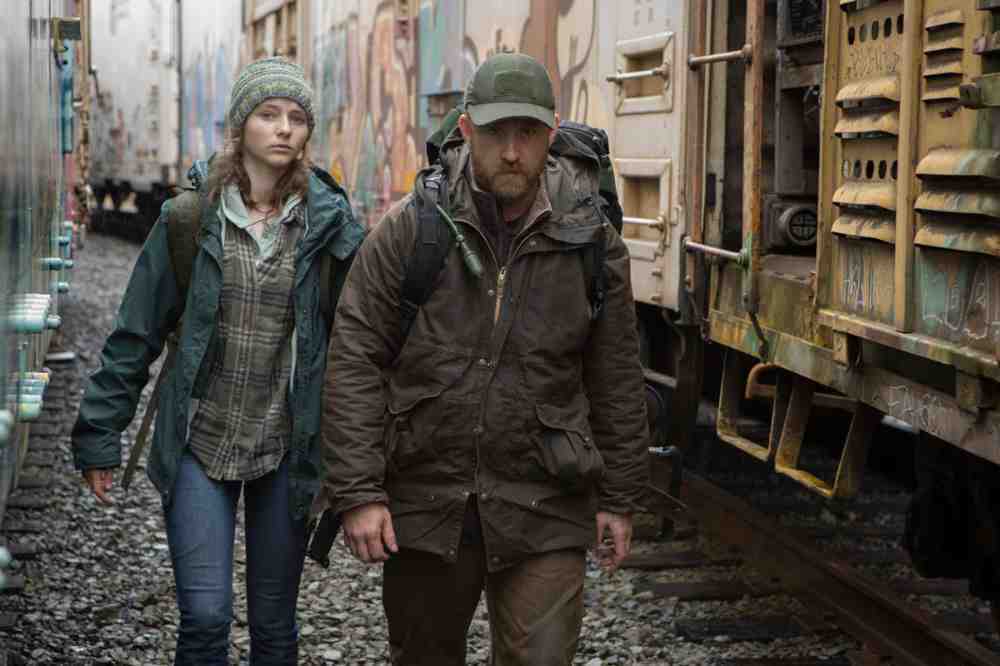
New Zealander Thomasin McKenzie stars in Leave No Trace, the first film by Debra Granik since she launched Jennifer Lawrence’s career with Winter’s Bone. McKenzie’s detailed, headstrong, and compassionate performance as Tom — a thirteen-year-old who has been living in a public park illegally with her veteran father (Ben Foster) — suggests she’s in the same league as Lawrence. McKenzie gave one of the very best performances at the festival, let alone among newcomers, in a film that rests heavily in the capable hands of its stars.
[clickToTweet tweet=”‘McKenzie’s detailed, headstrong, and compassionate performance in LEAVE NO TRACE suggests she’s in the same league as Jennifer Lawrence, who broke out in director Debra Granik’s previous film, WINTER’S BONE.'” quote=”‘McKenzie’s detailed, headstrong, and compassionate performance in LEAVE NO TRACE suggests she’s in the same league as Jennifer Lawrence, who broke out in director Debra Granik’s previous film, WINTER’S BONE.'”]
Granik’s decision to shoot the film in sequence pays dividends, allowing us to chart the changes in McKenzie’s and Foster’s body language toward each other. When the film begins, Tom follows her father quickly and without question, hanging on his every word, depending on him for everything. After they’re separated for the first time, she’s physically closed off from the rest of the world, turning inward, and talking brusquely. When she is finally reunited with her father, she flings herself around him in a needy hug as soon as they’re reunited, holding on for dear life.
But as Tom is exposed to a broader community, we see her open up and find joy in making new friends. Once she starts to spend time away from her father, she gains independence through making her own decisions. She begins questioning her father, interrogating his decisions, even as she continues to follow him — ever more slowly and reluctantly. Still, her deep affection for him, and their ease with one another, is present in every gesture; they communicate love and trust without speaking.
Read more on emerging actors in our Bright Young Things series >>

